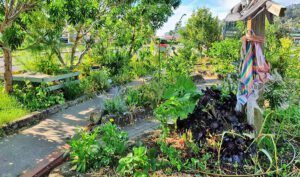This resource compiles insights from three educators who have integrated garden-based learning (GBL) into their teaching practices. Claire Nankivell, a Garden and Kitchen Educator at Moanataiari School in Thames, studied the potential of GBL for gifted and talented learners. Joseph D’Ambrosio explored teachers’ perceptions of GBL in an Auckland intermediate school, while Esha Narayan examined […]
Read More
